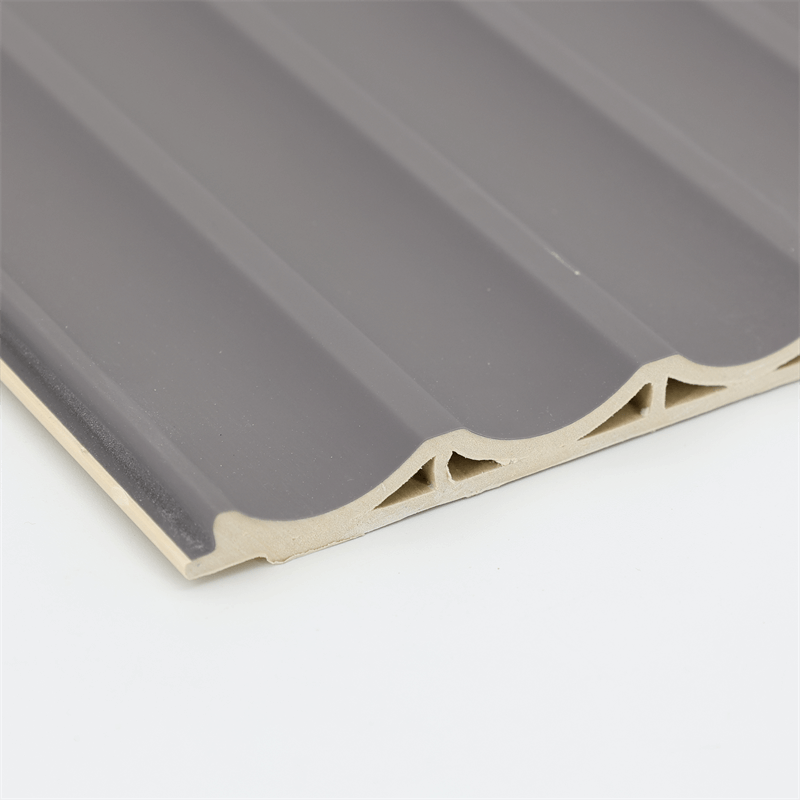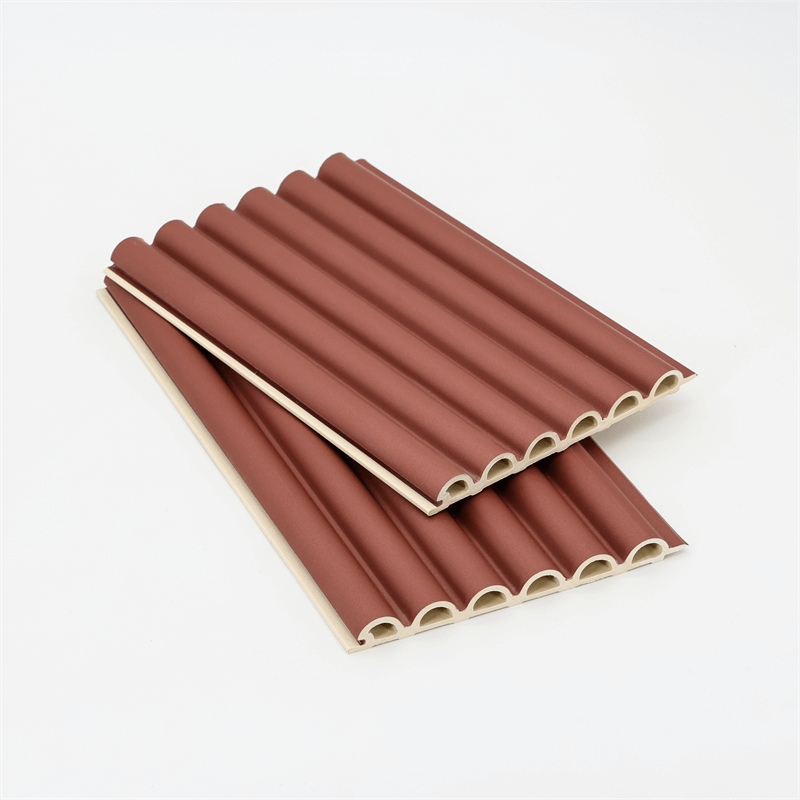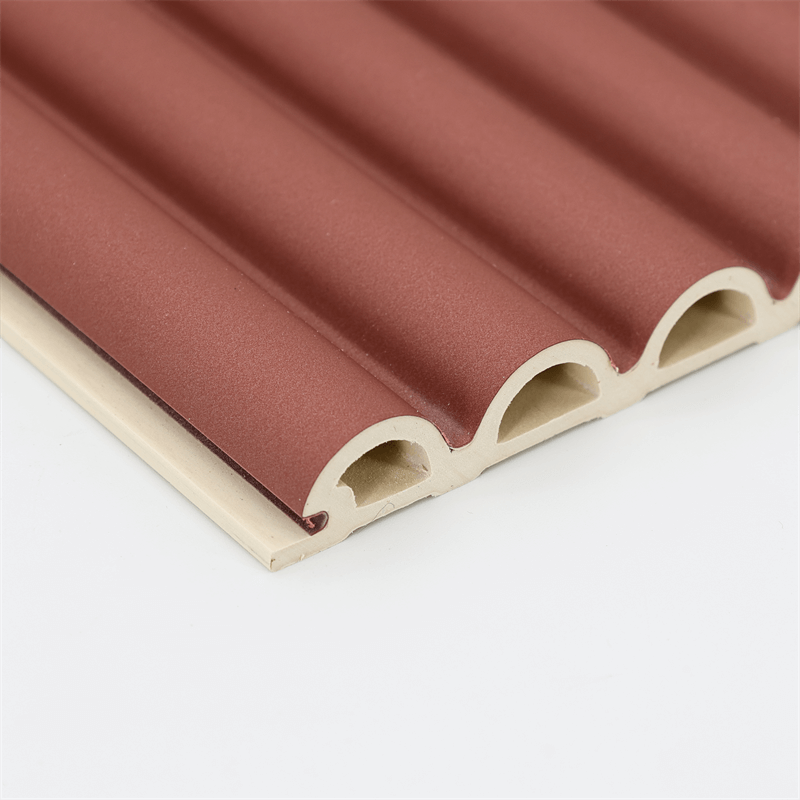Commercial spaces demand careful consideration in terms of design, functionality, and durability.
Architects and designers continually strive to create environments that not only captivate visitors but also serve their intended purposes effectively.
One material that has gained popularity in commercial design is WPC (Wood-Plastic Composite) wall panels.
These panels offer a unique combination of aesthetics and functionality, making them an ideal choice for commercial spaces.
In this essay, we will explore the benefits and possibilities of incorporating WPC wall panels in commercial design.
The essay will be divided into four sections, each focusing on different aspects of their integration.
I. Aesthetics and Design Versatility:
One of the primary advantages of WPC wall panels is their design versatility, enabling architects and designers to create visually stunning and customized commercial spaces.
These panels are available in a wide range of colors, textures, and finishes, allowing for endless design combinations.
Whether the goal is to achieve a modern, minimalist look or a warm and inviting ambiance, WPC wall panels can cater to diverse aesthetic preferences.
Additionally, WPC wall panels can be easily customized to incorporate unique patterns, artwork, or branding elements.
This level of flexibility ensures that commercial spaces can reflect the desired brand identity and create a memorable impression on visitors.
With WPC wall panels, designers have the freedom to explore various design possibilities and create visually captivating environments that leave a lasting impact.
II. Durability and Longevity:
Commercial spaces experience high foot traffic and constant use, making it crucial to select materials that can withstand the demands of daily operations.
WPC wall panels offer exceptional durability, as they are resistant to wear, impact, and moisture.
Unlike traditional materials like wood or plaster, WPC panels do not warp, crack, or fade easily, ensuring that they maintain their visual appeal over time.
The longevity of WPC wall panels also contributes to cost savings for commercial property owners.
These panels require minimal maintenance and are highly resistant to damage, reducing the need for frequent replacements or repairs.
The durability and long lifespan of WPC wall panels make them a practical choice for busy commercial environments, where aesthetics and functionality need to coexist.
III. Functionality and Practical Benefits:
Beyond their aesthetic appeal, WPC wall panels provide several functional benefits that contribute to the efficiency and comfort of commercial spaces.
One such benefit is their thermal insulation properties. WPC panels have inherent insulation characteristics, which help regulate indoor temperature and reduce energy consumption for heating or cooling.
By effectively insulating commercial spaces, WPC wall panels contribute to energy efficiency and cost savings.
Furthermore, WPC wall panels can enhance the acoustics in commercial settings.
Their dense composition and design help absorb and dampen sound, minimizing noise distractions and improving the overall acoustic experience.
This is particularly advantageous in spaces such as offices, conference rooms, or hospitality venues where clear communication and ambiance are essential.
IV. Sustainability and Environmental Considerations:
Incorporating sustainable materials in commercial design has become increasingly important.
WPC wall panels align with this trend as they are made from a combination of wood fibers and recycled plastic.
By utilizing recycled materials, these panels contribute to reducing waste and environmental impact.
Furthermore, WPC wall panels are often recyclable themselves, making them an eco-friendly choice for commercial spaces.
The sustainability of WPC wall panels extends beyond their materials.
Their durability and low-maintenance nature also promote sustainable practices.
With minimal maintenance requirements and a long lifespan, WPC wall panels reduce the need for frequent replacements and conserve resources in the long run.
By incorporating WPC wall panels into commercial design, architects and designers can demonstrate their commitment to environmentally conscious practices.
Incorporating WPC wall panels in commercial design provides architects, designers, and property owners with a versatile and practical option that enhances both aesthetics and functionality.
The design versatility of WPC wall panels allows for endless possibilities in creating visually appealing and customized spaces that leave a lasting impression on visitors.
The durability and longevity of these panels ensure that commercial spaces can withstand high foot traffic and maintain their visual appeal over time.
The functional benefits of WPC wall panels, such as thermal insulation and sound absorption, contribute to the efficiency and comfort of commercial environments.
Additionally, their sustainable characteristics align with the growing demand for eco-friendly design solutions.
By embracing WPC wall panels, commercial spaces can achieve a balance between aesthetics, functionality, and environmental consciousness, creating impactful and sustainable environments for all stakeholders involved.

In conclusion, incorporating WPC wall panels in commercial design offers numerous advantages in terms of aesthetics, functionality, durability, and sustainability.
These panels provide architects and designers with a versatile material that can transform commercial spaces into visually stunning and customized environments.
With their wide range of colors, textures, and finishes, WPC wall panels offer endless design possibilities, allowing for the creation of unique and memorable spaces.
The durability and longevity of WPC wall panels make them an ideal choice for high-traffic commercial areas.
They are resistant to wear, impact, and moisture, ensuring that they can withstand the demands of daily use without compromising their visual appeal.
This durability translates into cost savings for property owners, as they require minimal maintenance and have a long lifespan.
Functionally, WPC wall panels offer benefits such as thermal insulation and sound absorption.
They contribute to energy efficiency by regulating indoor temperature and reducing the need for excessive heating or cooling.
Additionally, their acoustic properties help create a more comfortable and productive environment by minimizing noise distractions.
One of the notable advantages of WPC wall panels is their sustainability. Made from a combination of wood fibers and recycled plastic, these panels contribute to reducing waste and environmental impact.
Their recyclability further emphasizes their eco-friendly nature. By choosing WPC wall panels, architects and designers can demonstrate their commitment to sustainable practices and contribute to a greener future.
Incorporating WPC wall panels in commercial design is a practical and cost-effective solution that enhances both the aesthetics and functionality of spaces.
They offer a harmonious blend of style, durability, and sustainability, making them a preferred choice for architects, designers, and property owners.
By embracing the benefits of WPC wall panels, commercial spaces can create inviting, visually appealing, and sustainable environments that leave a lasting impression on visitors while meeting the practical needs of the business.


